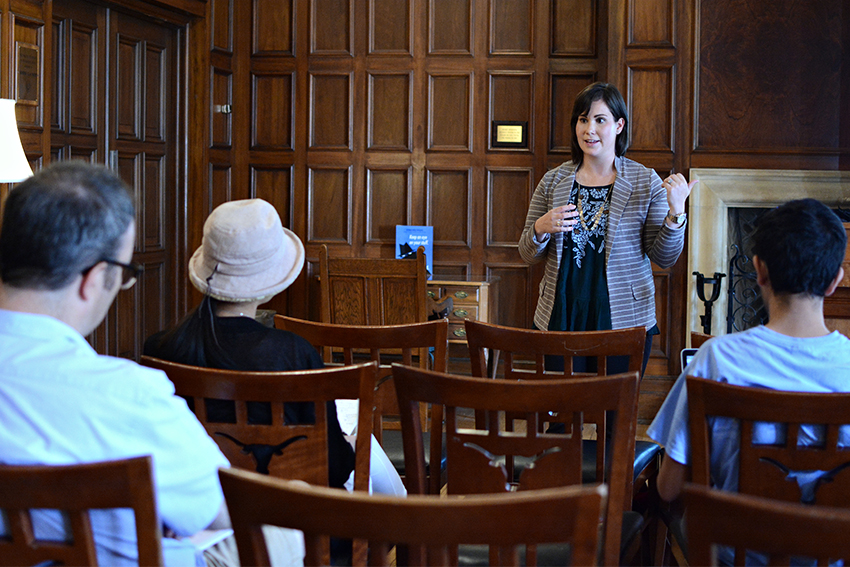Uninformed voters are likely to support candidates who have been imprisoned for relevant political reasons, according to the research findings of a government Ph.D. candidate.
Kimberly Guiler, who specializes in comparative politics and methodology, discussed the effects of political sacrifice on voting behavior Tuesday as part of the Turkish Ottoman lecture series.
Guiler’s fieldwork focused mainly on Turkish President Recep Tayyip Erdogan. She said Erdogan resonated more with the Turkish people by taking advantage of his 1997 arrest and subsequent imprisonment.
“Erdogan has used this rhetoric, victimizing himself, talking about his experience as a political martyr, … as somebody who was part of political parties that have been banned and repressed as a way to reach out to voters,” Guiler said.
Guiler said her work focuses on other factors that can affect voter support, such as conspiratorial rhetoric and public crying.
“The broader dissertation work looks at the effects of politicians’ rhetorical and gesture-based cues on voter support,” Guiler said.
Government graduate student Peter Russell asked Guiler after her presentation if she had an explanation for the increased likelihood of voters in support of Islamist candidates to favor a politically oppressed candidate in Turkey.
“You mentioned you saw a greater change when the candidate was Islamist and oppressed versus not Islamist and oppressed,” Russell said. “Did you consider an explanation for why that was the case?”
Guiler said this could be due to a lack of faith in the Turkish opposition parties.
“In Turkey, everyone refers to the opposition as this ‘hapless’ opposition,” Guiler said. “I think I didn’t see a bump so much with the [Republican People’s Party], because I think in general people were people down on the CHP.”
While interacting with Guiler, government graduate student Siyun Jiang said Taiwan experienced a case similar to Turkey’s.
“In Taiwan … there is also a history of oppression in the current leading party,” Jiang said. “I’m not sure whether they are making use of the individual political leader [and] history of the party itself.”
Guiler said the political effect of imprisonment is only one factor when studying voting tendencies.
“The ideology of the party, its policy positions matter,” Guiler said. “I am trying to introduce another variable that I’m saying we also need to pay attention to.”





















